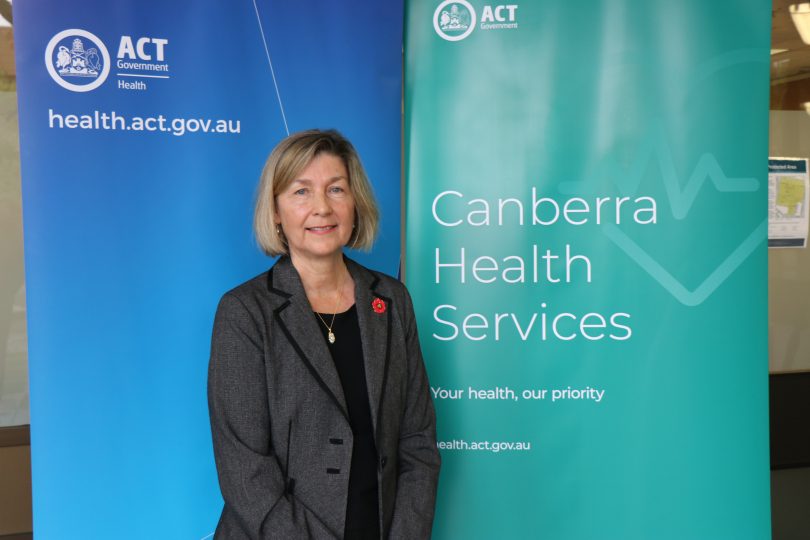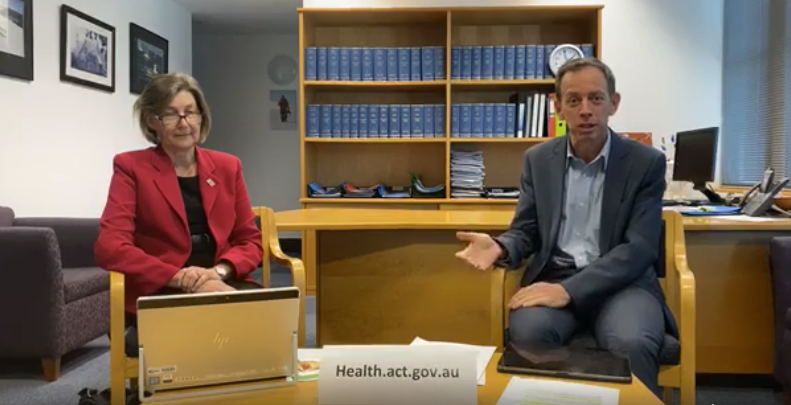
The Coordinator-General of the Office for Mental Health and Wellbeing, Dr Elizabeth Moore, says the ACT Government’s innovation fund will help projects address challenges that may not have arisen yet. Photo: File.
The ACT Government has set aside $450,000 for an innovation fund as part of its $4.5 million mental health package to cover the costs of further initiatives and unforeseen challenges throughout the COVID-19 pandemic.
The fund has been set up to cover any emerging gaps and encourage not-for-profits and community organisations to come up with new and innovative ways to adapt mental health services during the pandemic.
Coordinator-General of the Office for Mental Health, Dr Elizabeth Moore, has been impressed with the sector’s resilience in the face of distancing measures, and says this money will help invest in programs that can meet the community’s needs in a safe way.
“The general idea is that we do not have all the answers, we know that, and it is a fund for people to come to us with innovative ideas and new ways of working,” Dr Moore told Region Media. “There are emerging needs that none of us have a crystal ball [to know] what is to come.
“All those innovative people out there who can come up with creative ideas very quickly.”
The quick take-up and rapid investment in telepsychiatry and telehealth services – especially in aged care homes – is a testament to the changing nature of psychological services in Australia, said Dr Moore.
“Initially, people did not want to take on telepsychiatry, but telehealth is being used quite extensively,” she said. “The things that have surprised me, and that I have been really heartened about, are the way people have taken onboard the new ways of working.”
ACT mental health services such as Lifeline, Menslink and the Perinatal Wellbeing Centre have all seen a large increase in calls from the public during the COVID-19 pandemic and off the back of a horror fire season that also saw the ACT blanketed in smoke throughout the past summer.
Nationally, Lifeline has seen demand increase by 25 per cent, with Beyond Blue demand increasing 40 per cent.
ACT Minister for Mental Health Shane Rattenbury has said the sector will be dealing with the direct impact of COVID-19 on mental health in the long term. Dr Moore adds that it is the added uncertainty about what could happen after the pandemic that will also add to issues arising in the future.
“We have anxiety and depression from the actual disease, as well as from some of the very necessary management that has needed to happen, such as the closure of businesses and social isolation,” she said.
“Then we are going to have a series of mental health issues about how it all fits together after COVID-19 is over. Do we have the same amount of people in work? Has work changed? What is the change going to be in terms of people’s livelihoods?”

Dr Elizabeth Moore and ACT Minister for Mental Health Shane Rattenbury during a live Q&A session on social media. Photo: Supplied.
Minister Rattenbury said the package would ensure mental health services in the ACT are adequately funded to cover increased demand until at least the end of the year, providing a backstop until the ACT budget – which has been delayed – can be delivered following October’s election.
“[Non-government organisations] have identified increases in demand already, but we already know that you can expect mental health consequences to flow from major events,” he said.
“We need to make sure we have got the services in place to meet the demand we are already seeing and recognise that this will play out over time. We need to be prepared for that as people go through a range of different emotions and experiences.
“In that sense, it is recognising that the community sector may well come up with new ways of delivering services we have not thought of yet. That gives us the capacity to fund new pieces of work that may emerge during the next few months.”
If you or anyone you know needs help, you can contact Lifeline on 13 11 14 for 24-hour crisis support. In an emergency, call triple zero (000).
There are dedicated mental health and wellbeing resources on ACT Health’s COVID-19 website.





















